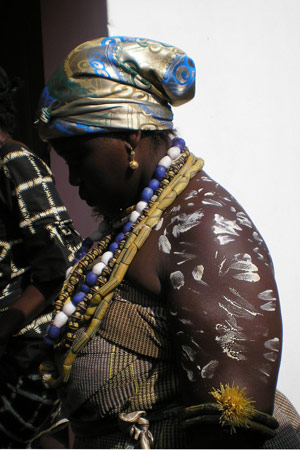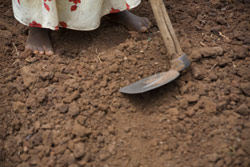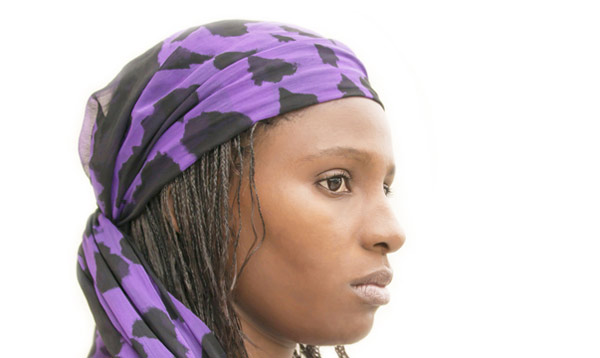BY GHONGKEDZE MARY, PHD
Women and men were created to complement each other. Women are supposed to be equal and treated with respect. The modern woman enjoys a lot of freedom that women from some parts of the world are oblivious to and they suffer silently. They do not comprehend what freedom actually means.
In most of the African countries the woman has no place, because it is a male dominated scenario all over the continent. In West African countries such as, Nigeria, Gabon, Ghana, and Cameroon we can see the same trend in the way widows are treated and disrespected in the society.
From a cultural standpoint, most of our communities and societies are male dominated. These are cultures that belief a woman is to be seen not heard; hence the notion of equality is far-fetched. It is a culture where the man provides, the man leads the woman follows, the man makes the rules and the woman has to be subservient in following the rules without questioning. A society that values and places a lot of importance on the male child over the girl child and hence the girl child cannot be a successor of the father. A man feels proud when he gets married and a woman is able to give birth to male children. It is sad to say as much as the UN tries to bring awareness to the plight of women on violence, inequality, it seems their effort does not yield fruits globally even in the twenty first century.
I come from the north west region of Cameroon and the practices and views on a widow is same as the south west region of the country. In the culture, marriage is viewed as the coming together of two families, and before one gets married, both families do a background check before they can allow the marriage to take place.
Consequently, when I got married to my college sweet heart, on December 17, 1977, I knew life was going to be fabulous until we would both reach our late 90s. And of course we used to imagine how sweet life at old age would become. Joseph, was two years older than I and we had so much in common to talk and laugh about. We had children and it was the best relationship I had ever had. We understood how to resolve our differences. Many sessions of the catholic Marriage Encounter programs helped spice our marriage even more. The year 2000 was welcomed as a new Millennium with a lot of goals and plans to fulfill. Top most was celebrating our silver jubilee of marriage. Nonetheless, as we were planning on this eudemonic event, a monster in the form of medullary thyroid cancer was also making his plans to attack Joe.
Our journey of a year and a half going through chemotherapy and radiation is tough to describe and could take another chapter. However, on October 25, 2002 Joseph took a shameless last breath for good just two weeks to his 48th birthday. That is when my world and life sort of came to an end.
Being in a foreign land here in the United States with no family members around was unimaginable. I had to gather courage to plan, make arrangements and decisions alone on his funeral and taking him [his remains] back home. Everything went well while in the USA, but the moment we arrived the Douala airport in Cameroon, the male dominated syndrome kicked into action. There were many people who would take decisions and only come to inform me. My ordeal started when I had to make it crystal clear that as a wife I had to be part of any decisions that were taken.
I remember vividly the night of the wake keeping or vigil, it took the whole night arguing with the family members where my husband was to be buried. To my dismay when I told them what Joe had told me about where he wanted to be buried, and was in his will, one of his uncles actually, went ahead and announced that my husband would be buried at the family compound “come sun or rain” and dissuaded the other family members not to listen to what a “woman” was saying. Addressing me as a woman was simply reiterating in a way the cultural place of a woman who should not take decisions that are to be taken by men.
I had to fight hard making it clear that my husband had to be buried at the church cemetery to fulfill his wish. Nonetheless, after a lot of heated argument they reluctantly accepted to have him buried at the church cemetery. Never before that night had I felt the extent of my own powers or sagacity and that fortified me for more objections or conflicts to come.
What are common challenges faced by widows?
I love cultural values and understand even the deep cultural aspects of my people, however there are some aspects of the culture that need to be refined or changed. As if the whole idea of death is not traumatic enough, the widow is subjected to cultural practices that make it harder, dehumanizing, and humiliating to a woman. I remember the first instance I was called a “widow”, honestly, I almost fainted, I felt sick to my stomach, looked around and realized I was truly the one with the new title – a title I dread till today. Why would I not dread the word widow, when it comes with the connotation of anguish, misery, melancholy, gloominess, torture, loner, desolation, affliction, unattractive, loser, garbage etc.?
A widow’s nightmare starts when her spouse dies.
Practices and treatment vary from region to region across the country. But for the most part in a typical traditional setting, when the corpse is still lying in state, the woman sits on the ground on a bare cold floor. The widow is not supposed to greet people with her hands. She has to eat with her fingers with her food placed on leaves and not allowed to use any form of utensil.

In some regions the widow is not allowed to take a bath/shower until the husband is buried. The whole idea of going for days without a bath is an anathema to me. A couple of days after the burial, she is taken to a stream very early in the morning covered with a small white cloth around her waist and the other widows and her sisters in- laws sing seven songs around her. At the stream the clothes she had worn before the burial are thrown away and she wears her sackcloth that she would use for a year in mourning her husband. Most often the sackcloth is black. But with many people now torn between Christianity and culture, some widows would mourn in a white sackcloth rather than black for a year.
The widow is not regarded with the same dignity as before by the in-laws who in some instances will accuse the widow of killing her husband. In a situation where she is accused by the family members, she is forced to swear openly over the husband’s corpse.
Another common practice is asking the widow to go bare footed until husband is buried. She has to sleep on a bamboo bed without a mattress or sleep on the bare floor covered with a few plantains leaves, where of course she could eventually develop pneumonia or catch a cold. I remember sleeping in this one big room house with about 15 other elderly women. It was hard to sleep and most nights I would cry myself to sleep. I was reminded I had to be bare footed and I kind of ignored the utterance and later told them my husband would not want to see me go barefooted as he always wanted the best for me. They knew I was a hard nut to crack as I was always ready with an answer.
Hair shaving is one of the most common practices a widow is subjected to do. Her hair is smooth-shaven as a sign of a new beginning for her. I allowed my hair to be smooth shaven and wore a black sackcloth out of my free will but not that I was forced to do it. My experience with a bald head and black attire reminded me every day of Joe’s absence. A year after, when I removed the sackcloth nothing changed and my grief was even worse, thus sackcloth or not doesn’t make the pain less or more, it is in the individual’s heart and the relationship they had with their spouse. However, in other regions the widow has to keep an unkempt, shabby, disheveled hair during the period of mourning. This makes her unattractive and deters other men from wooing her, which to me is an unconscious way where culture tortures a widow emotionally, psychologically and socially.
Furthermore, in some regions of the country, other practices prevail, where the widow actually would go for seven days without a shower and when the traditional ritual of bathing her is done, the family members would ask her to move on with her life.

In addition, she is handed an empty basket and asked to go around the compound and fetch some food. She might cut some bitter leaves, dig up some potatoes and put in the basket. She is then taken to her house and the symbolism of the hoe and basket is letting her know she is on her own and she would have to fend for herself and her family. The hoe is a symbol of survival as she would have to farm to get produce.
In a typical cultural setting the widow is not given time to mourn. As soon as the man is buried, family members of the husband begin the wooing process. The woman who relies on a man is ready to accept or choose any of the husband’s brothers, uncles, or nephews. She is forced to marry in the same family, whereas in other regions, the woman has the prerogative to remarry in the husband’s family or pay back whatever dowry was paid on her, if she chooses not to. Of course most of these women with no financial support would choose to marry any of the brother in-laws.
It is important to note that the woman’s relationship with her husband before his death sometimes would enable her get a better man from the family whereas, an unfaithful, naughty, pugnacious, abusive woman would be doomed to assaults and maltreatment from the in-laws and family members of the husband.
Problems with inheritance: The topmost practice against the widow comes from the husband’s immediate family members. As if the loss of her husband is not enough, some brothers in-law start fighting the widow for her husband’s property – they want the money in the bank, the plots or lots the husband had amassed. Some go as far as seizing furniture, cars, taking anything they deem valuable and selling the house, leaving the woman and her children with practically nothing.
As awful as it sounds, they do it because tradition holds a woman cannot inherit the man’s property when she herself is a property. If the widow has male children, sometimes they may be allowed to keep some of the father’s stuff – after all it is a man’s world. Even in cases where the man left a will there is still a conflict between the legal courts and the traditional customary laws.
It suffices to say here that there has been a great vicissitude in most regions in implementing some of these traditional rites. Families with educated folks are more understanding and sympathetic towards the widow, but again for the most part 70% of the widows are subjected to the insensitive torture of adding more salt unto injury when they lose their spouses.
Interestingly, these rituals do not happen with the widowers. When the man loses his wife, he is shown more sympathy, fed well and comforted. Most of the men don’t even mourn up to a year and they get another wife.
Ironically women are the ones implementing some of these obnoxious traditions and rituals on fellow women. And some widows are too afraid to go against these rules because they have internalized them for too long. They need liberation!
I have been there, I felt like one whose limbs were amputated too early in life. Going through the grief process was the most horrible experiences I have ever gone through in my life. It has taken me about twelve years to get over the anguish of losing my husband who was my best friend. I know what it means. Yes! I know! The reason I am always ready to reach out to anyone who has just lost a spouse is because I have worn the shoes and understand just too well where it pinches the most.
I believe while these ominous practices prevail we need more awareness and education for the woman in rural African countries. Knowledge is power and the more educated the woman is, the better her chances are to challenge some of the ominous traditions. Change can only be effected if each widow can stand up and say no to any of the demands of their society that is humiliating and become a bellwether so to say. I know how it feels to lose a sweet devoted husband, but I was never ready to add on some of the chagrin practices to my walk in the wilderness of grief. The moment a woman is at her most vulnerable one would think that is when people, community, society can come to her aid, but the reverse is what we see in settings that are tied to obsolete rites and rituals.
Hopefully, the sing song on women’s empowerment would filter down to every woman in the world, where violence and inequality still prevail, and one day the concept of a male dominated society could gradually fade into oblivion. Change may be hard to occur, but if we all become agents of change we could right the wrongs in some of our cultural values, rites and practices towards widows.
Dr. Ghongkedze Mary is an Assistant Professor at Grambling State University in Louisiana.
Join mailing list for updates and monthly newsletters


HI
An interesting story, so true of what women are enduring.
There is a long way before a consistent change occur. Not later than today I was speaking of my struggle against polygamy when a woman told me that as far as there ia a choice in the two form of marriage in Cameroon, there is no problem. As if there is really a choice!
I wrote a novel, the willing victims and in one paragraph I describe the treatement of a widow.I would like to meet you in Atlanta,Take care. mc